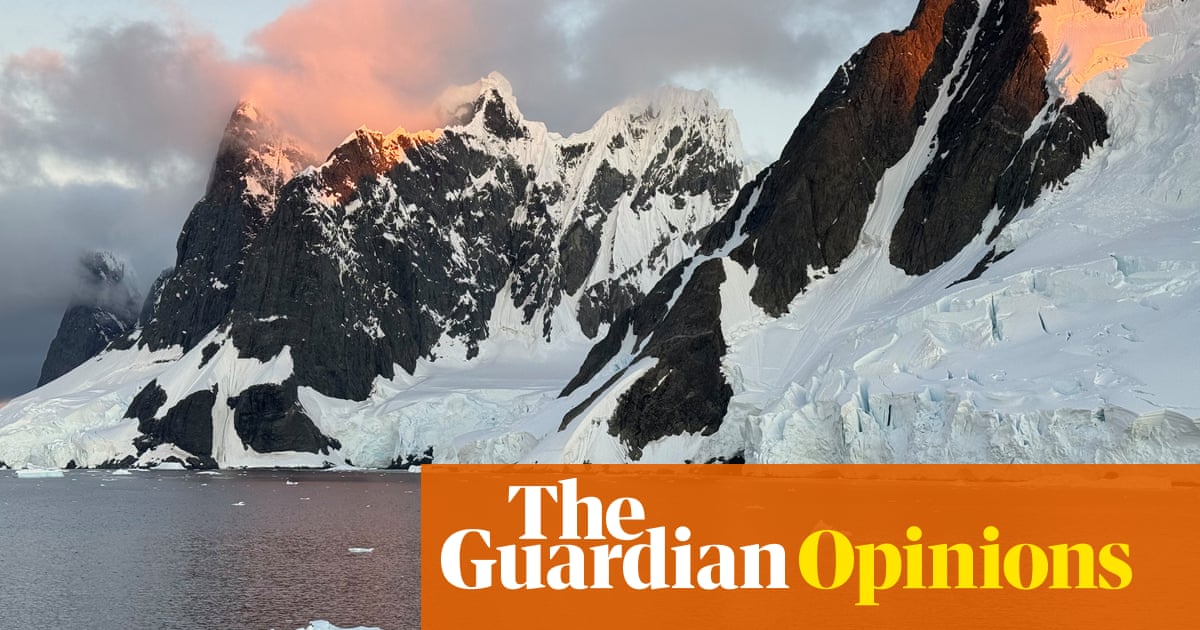Antarctica is often viewed as the last truly remote place on Earth – frozen, wild and untouched. But is it really as untouched as it seems?
This vast frozen continent is encircled by the Antarctic Circumpolar Current, the only current in the world that connects all the oceans, showing how closely linked our planet really is.
Earlier this year, I joined more than 100 scientists on a journey to Antarctica. What we encountered was extraordinary: towering icebergs, playful penguins, breaching whales and seals resting on the ice. Yet beneath this natural wonder lies a sobering reality – Antarctica is changing, and fast. The experience left me both inspired and deeply saddened.
This unique environment highlights the fragility of our planet. Its pristine landscapes and thriving wildlife represent what we stand to lose if we don’t take urgent action to reduce human impact.
Historically, Antarctica suffered from exploitation – hunters came for whales and seals, leaving scars on its ecosystems. While wildlife is slowly recovering, these species now face a new threat: climate change. Rising ocean temperatures are melting ice, reshaping habitats and disrupting the delicate balance of life.
The continent stands as a powerful symbol of our interconnected climate systems – a compelling case for conservation. During our visit, we toured research stations and Port Lockroy, where gentoo penguins raise their chicks. Here, human activity is carefully managed. Half the island is set aside for the penguins, while the other half welcomes around 18,000 tourists each year who come to learn about this remarkable place. It’s a model of coexistence – one that shows how we can live alongside nature when we choose to act responsibly.
Along our journey, we witnessed diverse wildlife in their natural habitats – from penguins and seals to whales and seabirds. Albatrosses and cape petrels followed our ship, gliding effortlessly over the waves – symbols of resilience, yet also vulnerability.
But reminders of past damage still linger. On Deception Island, rusted remains of the whaling industry serve as stark evidence of the harm unchecked exploitation can cause. They also underscore why continued protection of these fragile ecosystems is vital.
As an oceanographer, I study how the ocean shapes our world – and Antarctica is central to that story. The surrounding waters link the Pacific, Indian and Atlantic oceans through the Antarctic Circumpolar Current. This connectivity means that what happens in Antarctica affects us all. Pollution, warming seas and oil spills know no borders. These changes disrupt ocean currents, harm marine life and influence climate systems around the globe.
The implications are clear: addressing environmental challenges requires international cooperation and decisive action.
Sign up toClear Air Australia
Adam Morton brings you incisive analysis about the politics and impact of the climate crisis
after newsletter promotion
For Australia and other nations, the lesson is urgent. We must embrace sustainable practices, invest in renewable energy and support conservation efforts. By reducing carbon emissions and learning from the past, we can help protect Antarctica – and the planet – for future generations.
My journey wasn’t just about witnessing climate change – it was about understanding the deep interconnections that bind our world. And it’s not just about telling a story of adventure. It’s about sparking awareness of the power of science, leadership and collective action to drive meaningful change.
Antarctica, with all its beauty and vulnerability, reminds us what’s at stake – and why we must act now. The urgency is real. The responsibility is ours. Together, we can protect this extraordinary planet.
Jennifer Verduin is an oceanographer and professor at Murdoch University. She was one of 125 scientists who visited Antarctica as part of the Homeward Bound program
